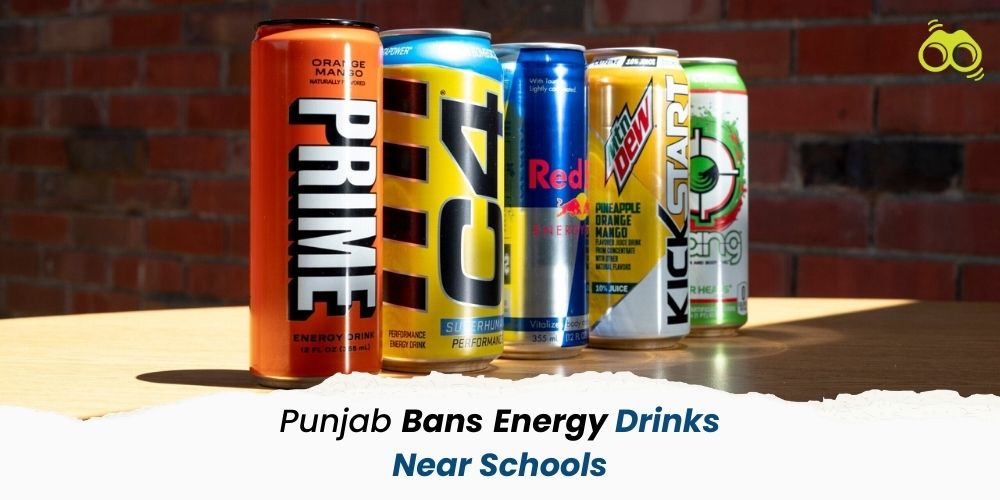Energy Drink Restrictions Near Schools Align with Punjab's Anti-Drug Drive
Punjab's Landmark Move: Energy Drinks Banned to Combat Caffeine Addiction
The energy drink market in India has reportedly witnessed rapid growth in recent years, fueled by evolving lifestyles and increasing demand for instant energy boosters. As of 2025, the market size was estimated at USD 0.78 billion, with projections suggesting it could reach USD 1.01 billion by 2030, growing at a compound annual growth rate (CAGR) of 5.52%. This growth is largely attributed to India's youthful demographic, with over 65% of the population under 35 years, making these beverages particularly popular among urban youth.
However, concerns regarding the health implications of energy drinks, especially for children and adolescents, have raised the need for regulation and awareness. These drinks, often packed with high levels of caffeine, sugar, and stimulants such as taurine and guarana, are linked to adverse effects including increased heart rate, dehydration, anxiety, and dependence. With approximately 77 million adults in India diagnosed with diabetes and an additional 25 million classified as prediabetic, there is a growing demand for healthier and sugar-free alternatives. Officials emphasised that addressing these consumption trends, particularly within school environments, is crucial to protecting children’s health and encouraging responsible behaviour.
In response to these concerns, Punjab became the first Indian state to prohibit the sale of energy drinks in and around school premises as part of its anti-drug efforts aimed at preventing caffeine addiction among children. According to the notification issued on April 23, 2025, energy drinks were banned from school canteens, tuck shops, and any establishments within a 100-meter radius of school premises in rural areas and 50 meters in urban zones. Effective for one year starting April 21, 2025, this initiative marked a significant step toward fostering healthier environments for students.
The notification, issued by Dilraj Singh Sandhawalia, Commissioner of the Food and Drug Administration (FDA), reportedly deemed the ban “just and necessary” to protect children’s health. Authorities pointed out that these drinks, heavily marketed to children and young adults, often contain stimulants such as caffeine, taurine, guarana, and ginseng. They added that some manufacturers use exaggerated comparisons to drugs like cocaine to promote these beverages. Officials stated the decision had been made in the public interest to shield young people from potential health risks.
Further concerns were raised about the rising availability of energy drinks marketed as dietary supplements or quick energy boosters. Authorities noted that these beverages contain up to 80 mg of caffeine per serving, which can stimulate the nervous system but also pose risks, particularly when consumed alongside alcohol or addictive substances. Scientific warnings have reportedly highlighted the risks of caffeine-fortified products spreading to other commonly consumed items targeted at children.
The Punjab government reiterated that caffeine-containing products are typically restricted in beverages aimed at children and also discouraged for pregnant and lactating women. The ban was connected to the state’s intensified anti-drug campaign, launched after the Aam Aadmi Party’s loss in the Delhi Assembly elections, and included measures such as arrests and asset seizures targeting drug peddlers. A cabinet subcommittee comprising Ministers Harpal Cheema, Aman Arora, and Dr. Balbir Singh was reportedly formed to address the risks of caffeine addiction in children due to energy drink consumption, which could potentially lead to substance abuse.
Legal advice confirmed that the FDA Commissioner had the authority to impose such restrictions, particularly since manufacturers already label these drinks as “not recommended for children.” The notification also referred to research linking energy drinks to various health issues, including cardiovascular, neurological, gastrointestinal, metabolic, and renal problems due to their stimulant ingredients. Punjab's landmark decision to ban energy drinks near school premises sets an important precedent for prioritising children's health and curbing harmful consumption habits.
Editor's Note
Punjab’s decision to ban energy drinks near school premises is a commendable step in prioritising children’s health over commercial interests. In a market where energy drinks are aggressively marketed to young consumers with exaggerated claims, this initiative sends a strong message about protecting vulnerable populations from the harmful effects of caffeine and other stimulants. These drinks, often promoted as quick energy boosters, are linked to serious health risks, including cardiovascular and neurological problems. Punjab’s proactive approach sets an important example for other states to tackle the unchecked consumption of such products, especially among children. By addressing the potential for caffeine dependency at its core, the state is not only creating healthier school environments but also addressing the long-term societal risks of addiction. While this ban is a vital first step, it must be followed by ongoing awareness campaigns and stronger enforcement measures to ensure compliance.
Skoobuzz applauds Punjab for this decision, though the fight against harmful consumption trends continues, Punjab’s decisive action has set a new standard in safeguarding public health and securing a healthier future for the next generation.














0 Comments (Please Login To Continue)